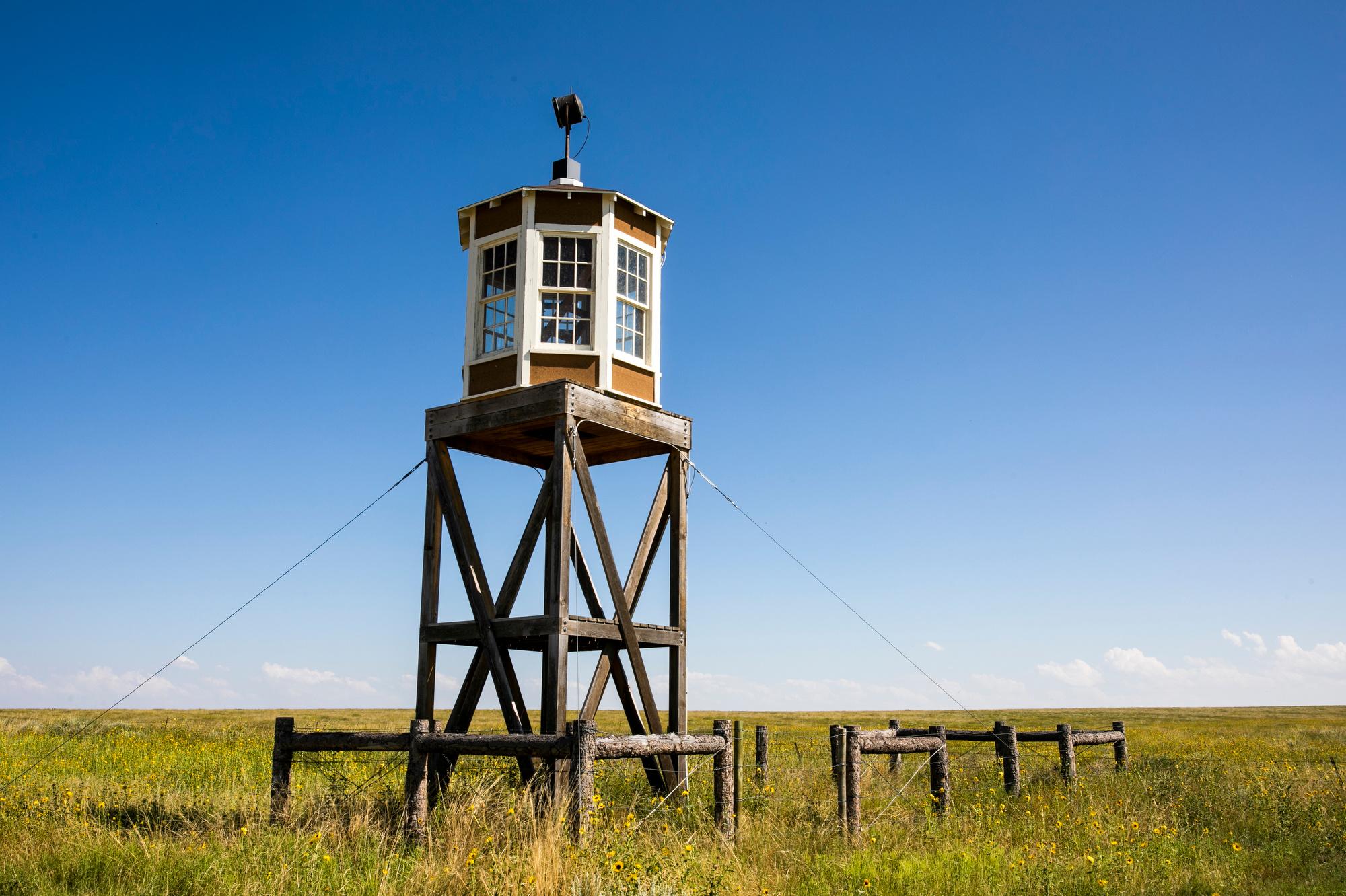
Southeastern Colorado is about to be home to a new historic site, after President Joe Biden signed the Amache National Historic Site Act into law Friday.
The World War 2 Japanese internment camp located in the small town of Granada will become part of the National Park System, which will use its resources to preserve and protect the site, as well as educate future generations about the history of internment. About 7,000 Japanese Americans or ethnic Japanese were kept at Amache, part of the 120,000 ethnic Japanese interned in 10 camps around the U.S. during the war.
Colorado Sen. John Hickenlooper was the lone state representative present at the signing ceremony. He said watching a bill he’s worked on becoming law is “always a moment of exhilaration and excitement.”
But the best thing about Amache becoming a historic site, Hickenlooper said, “is it makes sure we don’t forget these hard-learned lessons from our history where the United States went the wrong direction.”
Noting that others in the delegation have been working on this “long before” he arrived in the Senate, Hickenlooper said before the ceremony that he would represent them “as loudly as I can.”
Hickenlooper sponsored the bill in the Senate with fellow Coloradan Sen. Michael Bennet, who praised the Amache survivors, descendants and advocates for working to get the site recognized.
“Thanks to their work, future generations will now have the opportunity to learn about what happened at Amache and the Americans who were interned there,” Bennet said in a statement. He recently visited the site with Secretary of the Interior Deb Haaland and Rep. Joe Neguse. “We have a responsibility to carry their legacy forward, and now Amache has the recognition and resources it deserves.”
Rep. Neguse announced the presidential signing earlier in the day. The Democrat shepherded the bill through the House alongside Rep. Ken Buck, his GOP co-sponsor who represents the area where the camp is located. Neguse tested positive for COVID earlier this week and was not able to attend the closed ceremony.
In a statement, Neguse said he was “thrilled” the bill is now a law.
“When we work together, when we listen and lead locally, we can accomplish a lot. This bill proves it. With the support of countless community advocates and the powerful stories of survivors and descendants, we’ve been able to authorize the site’s designation in record time.”
For years, survivors of Amache and their descendants have worked and waited for the site to be recognized.
Bob Fuchigami, who was 11 years old when he and his family were sent to Amach, said this is long overdue.
"I've waited many, many years to see the day where we can be certain that Amache, as a place of reflection, remembrance, honor, and healing, is protected for our current and future generations," said Fuchigami. Friday's signing "brings me hope that we are finally closer to this certainty."
Under the law, the National Park Service will have to develop a management plan and set up visitor services.
The site is currently maintained by a dedicated group of volunteers, led by John Hopper, a teacher and dean of students at the local high school. For 28 years, he and his student volunteers have worked hard to preserve the site and establish a museum. He said this moment is "extremely important for the Japanese Americans that were in Amache and all their descendants."
"We must preserve this site so that this never happens again," he said, adding the community and Amache Preservation Society look forward to working with the National Park Service.
Hickenlooper remembered traveling with former Gov. Roy Romer to the Amache museum and speaking with Hopper. He said Romer told him about a football game he played against the Japanese American kids in the camp.
“About halfway through, he realized how badly [the Amache kids] needed to win,” Hickenlooper recalled. “They’d been locked up, taken away from their homes… taken away from their old schools, and this football game meant so much to them.”
The Amache kids did win, and the museum has a picture of that game, featuring a 16-year-old Romer.
Hickenlooper hopes the new law will lead more Americans to visit Amache, bringing along with them an economic boost to the area. He said it shows people that the country can make a mistake, but is also strong enough to admit that mistake and “make sure we don’t do it again.”









